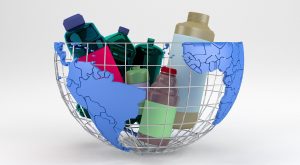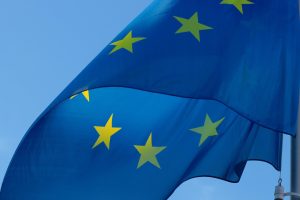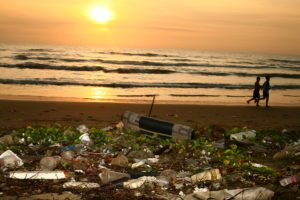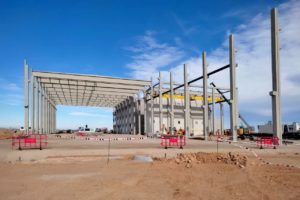The state of California has been adamant about sustainability and has made it mandatory for plastic bottles to contain 50% recycled material by 2030. This is one of the most ambitious laws to date, being the first state in the United States to establish a minimum recycled content in bottle manufacturing. The question is whether companies are able to meet the challenge.
The established target is higher than the EU target, which has been somewhat more lenient by making 30% rPET mandatory on packaging by 2030. However, the deadline is longer than that imposed by England, where a 30% recycled content must be achieved by April 2020, through a tax on plastic packaging in bottles below that threshold.
What does this mean for the brands? This measure requires that the bottles manufactured reach a 15% of recycled content by 2022, increasing the percentage to 25% by 2025, and to 50% by 2030. Currently, the largest companies in the state, Coca Cola, Nestlé Waters and Keurig Dr Pepper (KDP), have already met the first interim recycled content target for 2022 in California and are already working on projects that will help them reach the mandatory threshold by 2030.
Coca Cola
The world-renowned Coca Cola recorded an average of 20% rPET in the bottles the brand currently sells per year in California. The soft drink giant thus supports the new state legislation. It considers it an ambitious target but is confident it can be achieved, which is not surprising since it is a figure consistent with their own goal of making bottles and cans with a 50% recycled content by 2030. The company has an overall target of collecting and recycling one bottle or can for each one it sells, to ensure all packaging is 100% recyclable by 2025.
To achieve this, the company is stepping up its efforts in rPET, starting in California and expanding throughout the rest of the United States. However, the company points out that there are worldwide economic, infrastructure and supply chain challenges that need to be addressed in order to boost the rPET content in packaging.
Keurig Dr Pepper to launch first 100% rPET bottle
Keurig Dr Pepper, whose brands include Dr Pepper, 7Up and Sunkist, has already set itself the target of achieving a 30% recycled content in its packaging by 2025, which puts it slightly above the target of the new California law.
Currently, 20% of the brand’s packaging materials contain recycled post-consumer materials and the company is working towards achieving 30% PCR (recycled and recyclable) material usage by 2025. The company has stated it will introduce the first bottles made from 100% recycled PET later this year.
Similarly to Coca Cola, the company believes that increasing the amount of recycled content in packaging will be crucial to achieving the targets set by the state of California as the industry’s biggest challenge in increasing PCR use, according to the company, is that the supply of recycled material is limited and not all material that is available meets the necessary characteristics of food packaging.
In this respect, multilayer PET/PE containers, also known as technical containers, are ideal for preserving food as they are made up of several layers of different materials, joined together by adhesives. However, although their recycling is initially more complicated, it can be done and, furthermore, in a sustainable way, both economically and environmentally.
RepetCo Innovations has developed an innovative mechanical recycling technology for such PET/PE containers, which separates the different layers that make up the plastic and generate rPET pellets and rPE that can be reused in the food industry.
Nestlé Waters
In the case of Nestlé Waters, its Vice President was one of the first two people to support the new Californian legislation. The company states that its determination to lead the industry’s path towards an increased use of rPET has never been stronger.
Across the United States, Nestlé Waters currently uses an average of 16% rPET. However, in California, this amount is higher as the use of rPET here reaches 36.2% of the total volume of PET used in the bottles it sold last year in California.
Additionally, the Arrowhead Brand Mountain Spring Water and Nestlé Pure Life Purified Water single-serve bottles, which are produced in California, have been made from 50% recycled plastic since 2017. Moreover, the company is aiming for a 25% rPET target across the US for household packaging by next year and a 50% by 2025.







